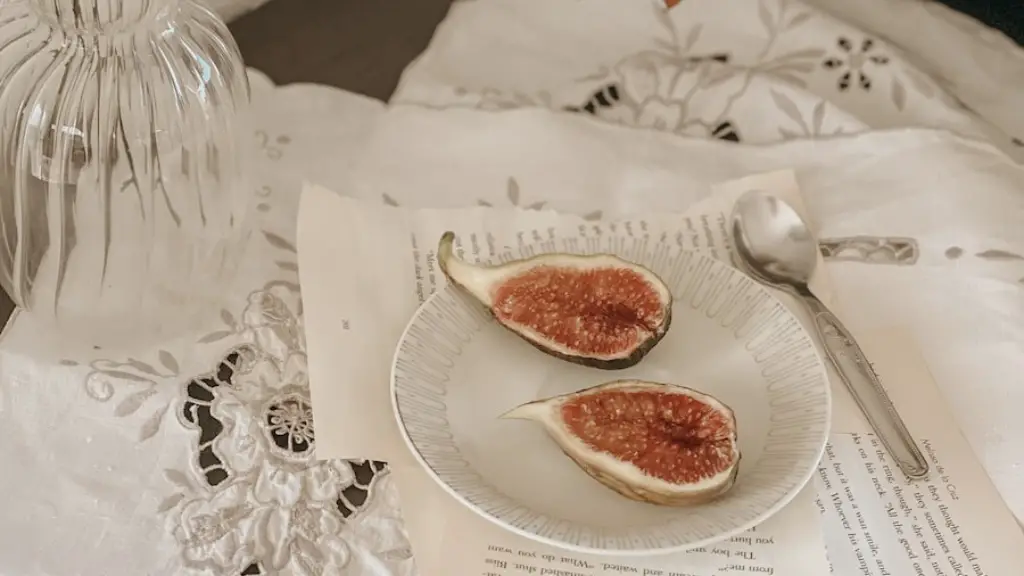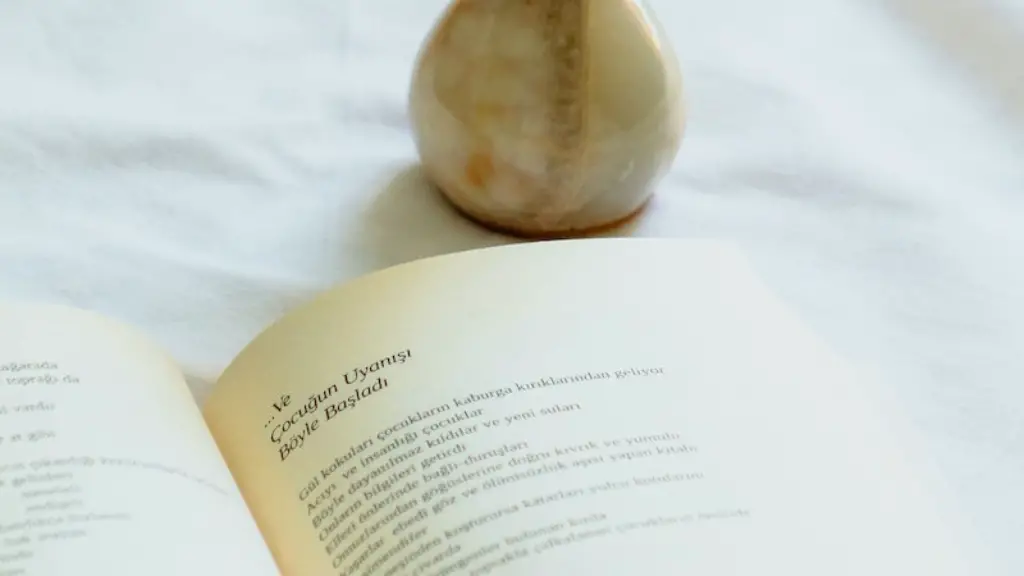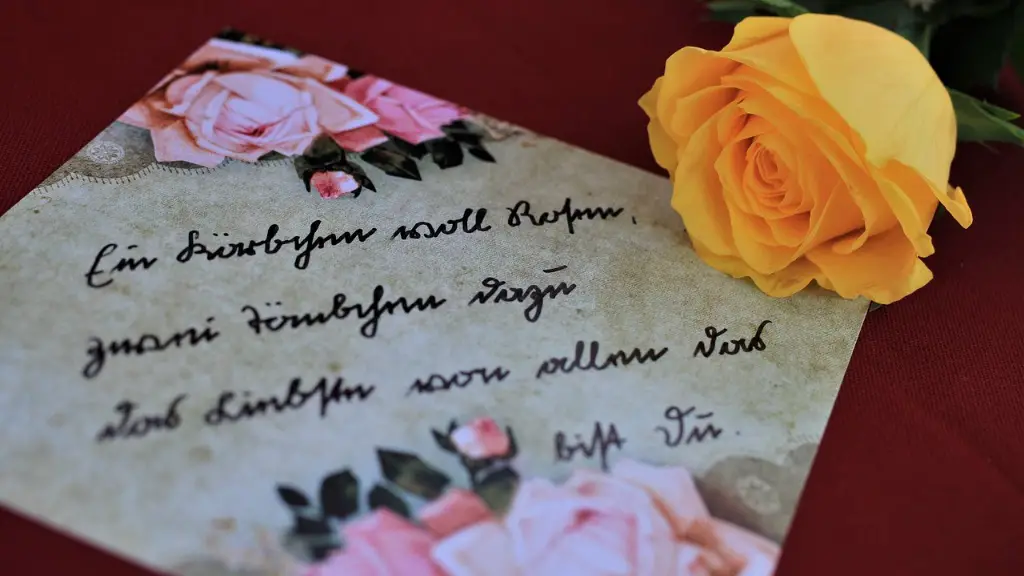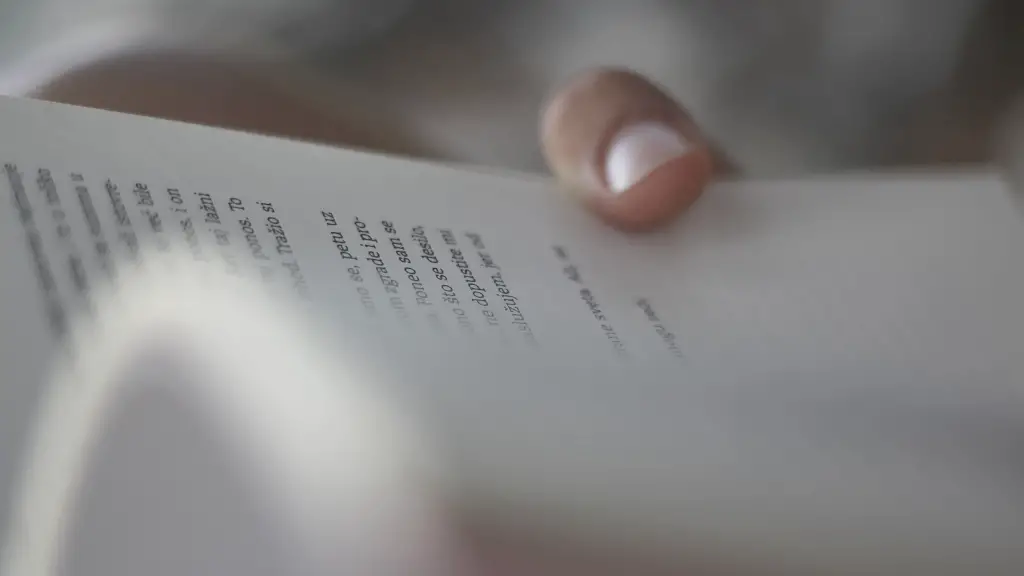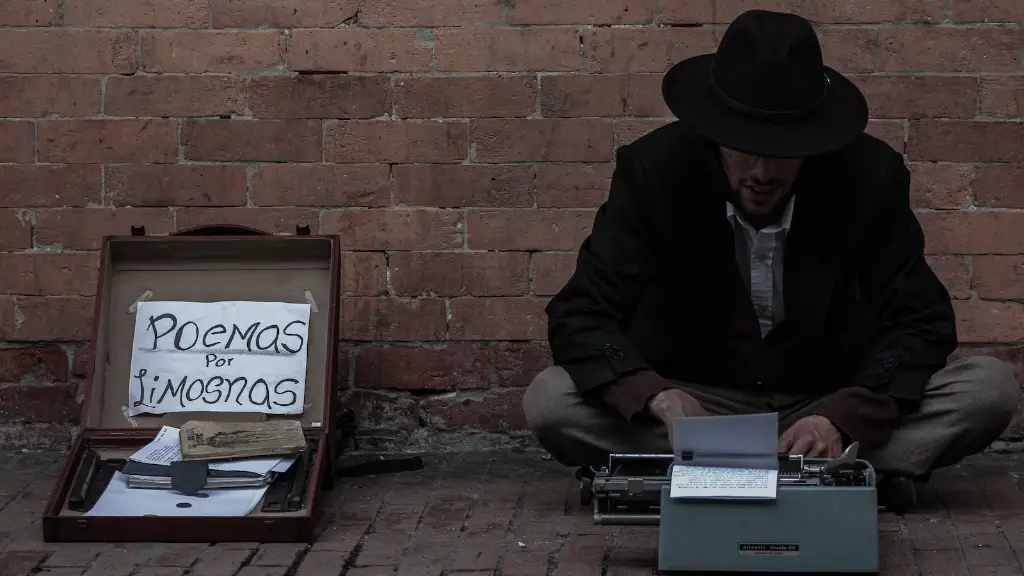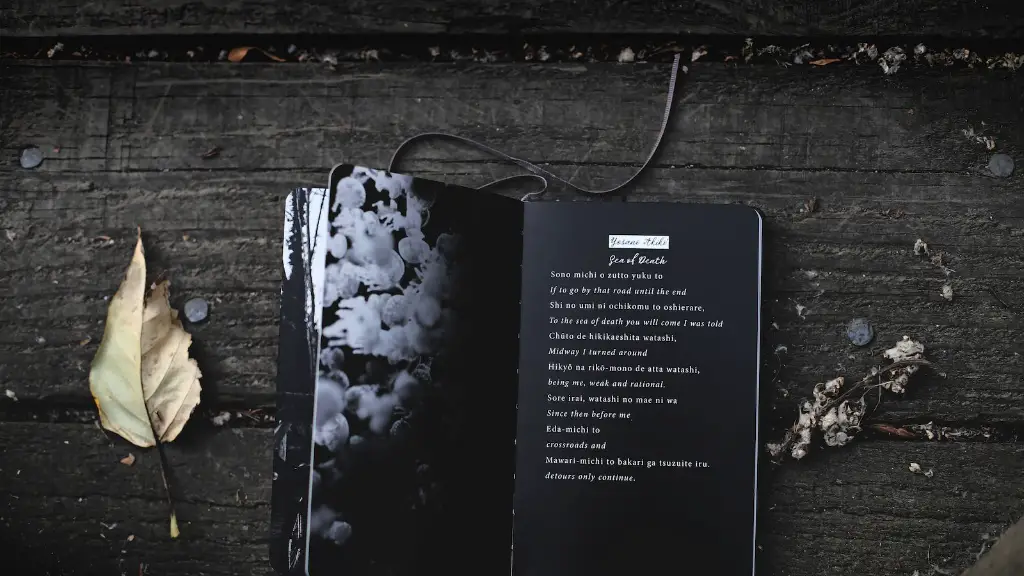The Power of Poetry
When it comes to expressing emotions, words often fail us. That’s where poetry steps in. Poetry allows one to explore the depths of the human condition: love and sorrow, joy and pain, peace and war. It is often the best way of communicating feelings and conveying a story.
Poetry, however, is much more than just emotion. It is both a craft and a conduit for beautiful language, from the simplest of sounds to dizzying verbal heights. In its delicate balance of construction and emotion, poetry reveals truth, beauty and soul. It can be disarmingly effective or quietly moving, stirring up its audience to feel, think, explore and engage.
Although it is widely regarded as an art form, many people question the relevance and popularity of poetry in the modern world. After all, there are many other forms of entertainment vying for our attention. But the truth is that in spite of the changing times, poetry remains an important source of inspiration, insight and knowledge.
Today, poets are more accessible than ever before. With the surge of literary journals, author readings, festivals and book clubs, people can share in the beauty of words. There’s also an increasing number of opportunities for writers to make a mark, by getting their work published, exploring different writing styles and connecting with other poets.
Poetry is also seen as a form of therapy, providing a sense of community as well as a way to manage stress and anxiety. Its expressive power has prompted many to turn to its pages for comfort in times of love and loss, joy and pain.
Most importantly, poetry can be a form of activism. Through their words, poets can empower those who are disadvantaged and create social change. They can challenge the status quo, question the government, speak against injustice and provide a platform for unheard voices.
Rhyme and Meter in Poetry
The use of rhyme and meter is what sets poetry apart from prose. Rhyme gives structure and sound to a poem, which connects the words, thoughts and phrases. It also reveals a rhythm, which can evoke certain emotion in the reader. While some may see rhyme as a form of decorative language, it allows the poet to play with different sounds and create a mood.
Meter, on the other hand, is the use of stressed and unstressed syllables. This helps to organize and form the poem’s composition, like the use of a musical score. Meter brings structure to a poem, thereby lending it a musical quality. It also guides the reader through the poem and helps them to understand its meaning and tone.
Though rhyme and meter can be used to create pleasant poetry, they can also be used to express complex ideas and difficult topics. They provide the writer with more creative freedom, as they can manipulate the words to fit in a specific pattern. This can help to paint a picture, as well as capture the nuances of a given situation.
The Form and Structure of Poetry
The form and structure of a poem are determined by its type. Poems can take the form of a sonnet, with fourteen lines and a rhyme scheme, or a haiku, with three lines and a focus on nature. They can even take the form of a free-verse poem, which allows the poet to play around with words without any rhyme or meter.
The structure of a poem can also differ according to its type. Narrative poems, for example, tell a story, while lyrical poems focus on expressing the poet’s feelings. There are also epigrams, which are usually one-liners that express a sharp insight or idea. Each form offers the poet its own kind of challenge and a platform to explore.
When it comes to writing poetry, there is no single rule. Poets can choose their form and style, as long as they maintain a level of best practice. This includes conveying a message, staying faithful to the poem’s structure and engaging the reader throughout.
The Art of Performance Poetry
To many, the art of performance poetry is integral to modern poetry. It is a style of delivery that emphasizes expression and energy, allowing the poet to inject more emotion into the poem and represent its content more vividly. Performance poetry can draw on the techniques of theatre and music, as well as use a range of vocal techniques.
At its best, performance poetry is both provocative and entertaining. It can be an intimate, cathartic experience or a powerful, political statement. Whether it’s in the form of slam verses or a poetic monologue, the art of performance poetry is to engage the audience in a way that prose often can’t.
Genres of Poetry
When it comes to the genres of poetry, there are an abundance of choices. These range from epic poetry, which is traditionally rooted in heroic tales, to love poetry, which is all about expressing and exploring emotions of love.
Other genres include odes, haikus, elegy, religious poetry, detective poetry and much more. Each genre offers the writer its own set of challenges, allowing them to express different feelings, ideas and stories. With so many forms of poetry to explore, writers can find something that speaks to them and use it to express themselves in the most vivid of ways.
Popular Poets and Poems
Over the centuries, there have been many poets who have left an indelible mark on the world of poetry. From William Wordsworth and John Keats to Emily Dickinson and Pablo Neruda, each of these writers has created works that have touched and inspired a generation.
Along with their names, popular poems such as ‘If’ by Rudyard Kipling, ‘The Road not Taken’ by Robert Frost and ‘The Love Song of J. Alfred Prufrock’ by T.S. Eliot have also gained lasting recognition. These timeless masterpieces capture the essence of human nature and the world around us, proving that the best poetry transcends time and place.
The Impact of Poetry
Poetry has always been a powerful form of expression. It is a way of engaging readers, expressing emotions unequivocally and uncovering meaning. It can act as a conduit for knowledge and provide us with a platform to challenge the status quo.
But perhaps the greatest impact of poetry lies in its ability to move and transform. Through its simplicity and complexity, poetry can speak to people’s hearts, souls and even their sense of justice. Even if one doesn’t entirely understand a poem, the emotions stirred by its words can be enough to make it unforgettable.
In short, poetry is a unique art form that speaks to us all. It is a way of communicating feelings and a platform to explore what it means to be human. It is a language of feelings, ideas and stories, which will stay with us long after the words have been spoken.
